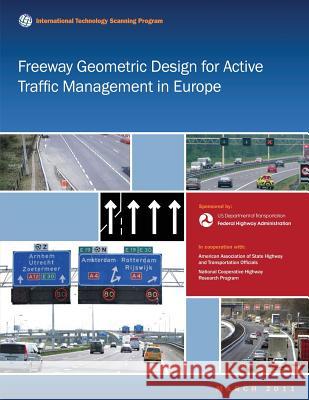Freeway Geometric Design for Active Traffic Management in Europe » książka
Freeway Geometric Design for Active Traffic Management in Europe
ISBN-13: 9781480263864 / Angielski / Miękka / 2012 / 90 str.
Continued growth in travel on congested urban freeway corridors exceeds the ability of agencies to provide sufficient solutions and alternatives based on traditional roadway expansion and improvement projects. Several countries are implementing managed motorway concepts to improve motorway capacity without acquiring more land and building large-scale infrastructure projects. The Federal Highway Administration, American Association of State Highway and Transportation Officials, and National Cooperative Highway Research Program sponsored a scanning study of England, Germany, the Netherlands, and Spain to examine the use of innovative geometric design practices and techniques to improve the operational performance of congested freeway facilities without compromising safety. Managed motorways are a combination of active or dynamically managed operational regimes, specific designs of infrastructure, and technology solutions. The concept uses a range of traffic management measures to actively monitor the motorway and dynamically control speeds, add capacity, and inform road users of conditions on the network with the objective to optimize traffic and safety performance. Examples include shoulder running, variable mandatory speed limits, lane control signals, and driver information using variable message signs. Managed motorways increase journey reliability and throughput of a motorway by speed management and increase capacity by shoulder running.
Zawartość książki może nie spełniać oczekiwań – reklamacje nie obejmują treści, która mogła nie być redakcyjnie ani merytorycznie opracowana.











